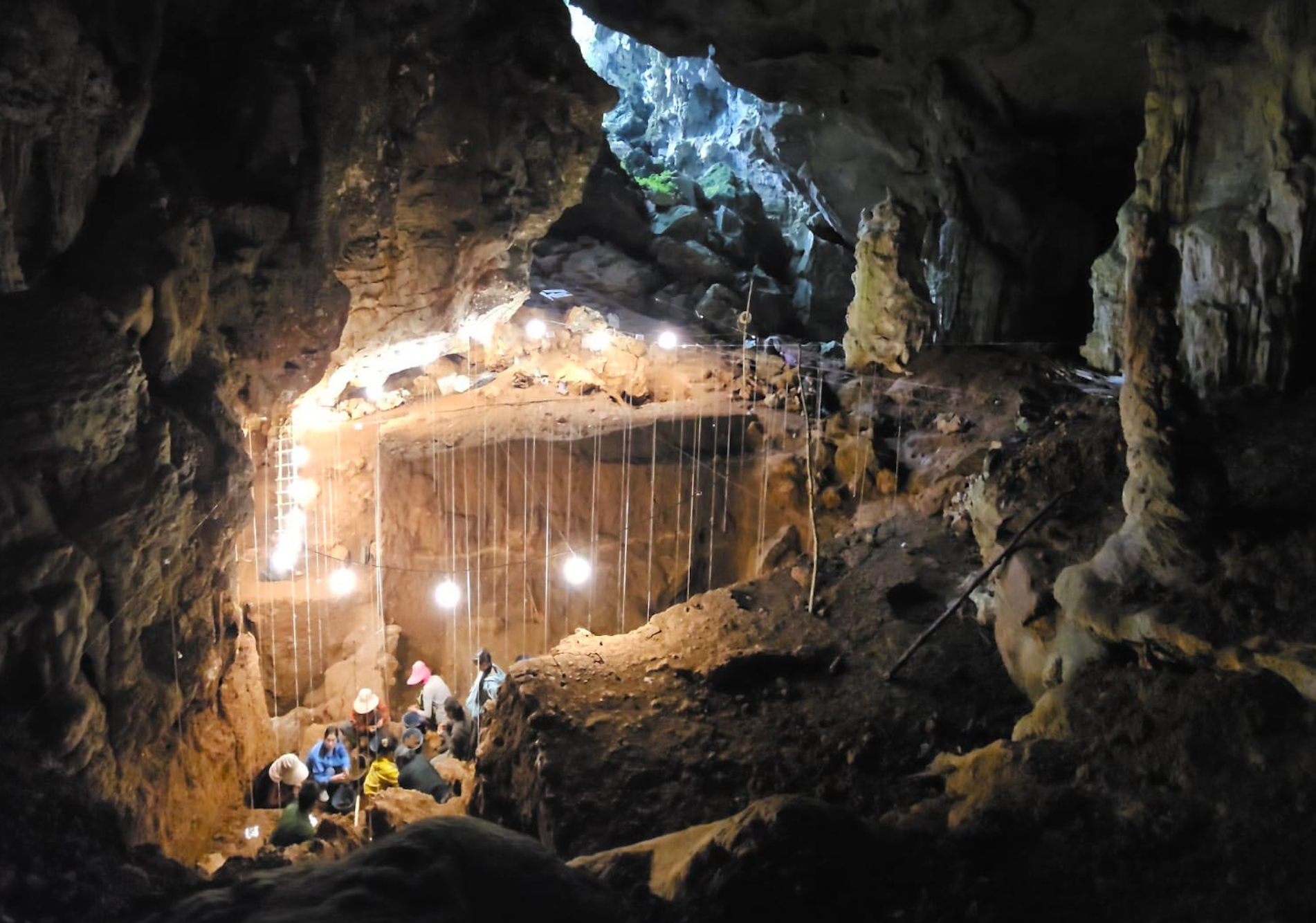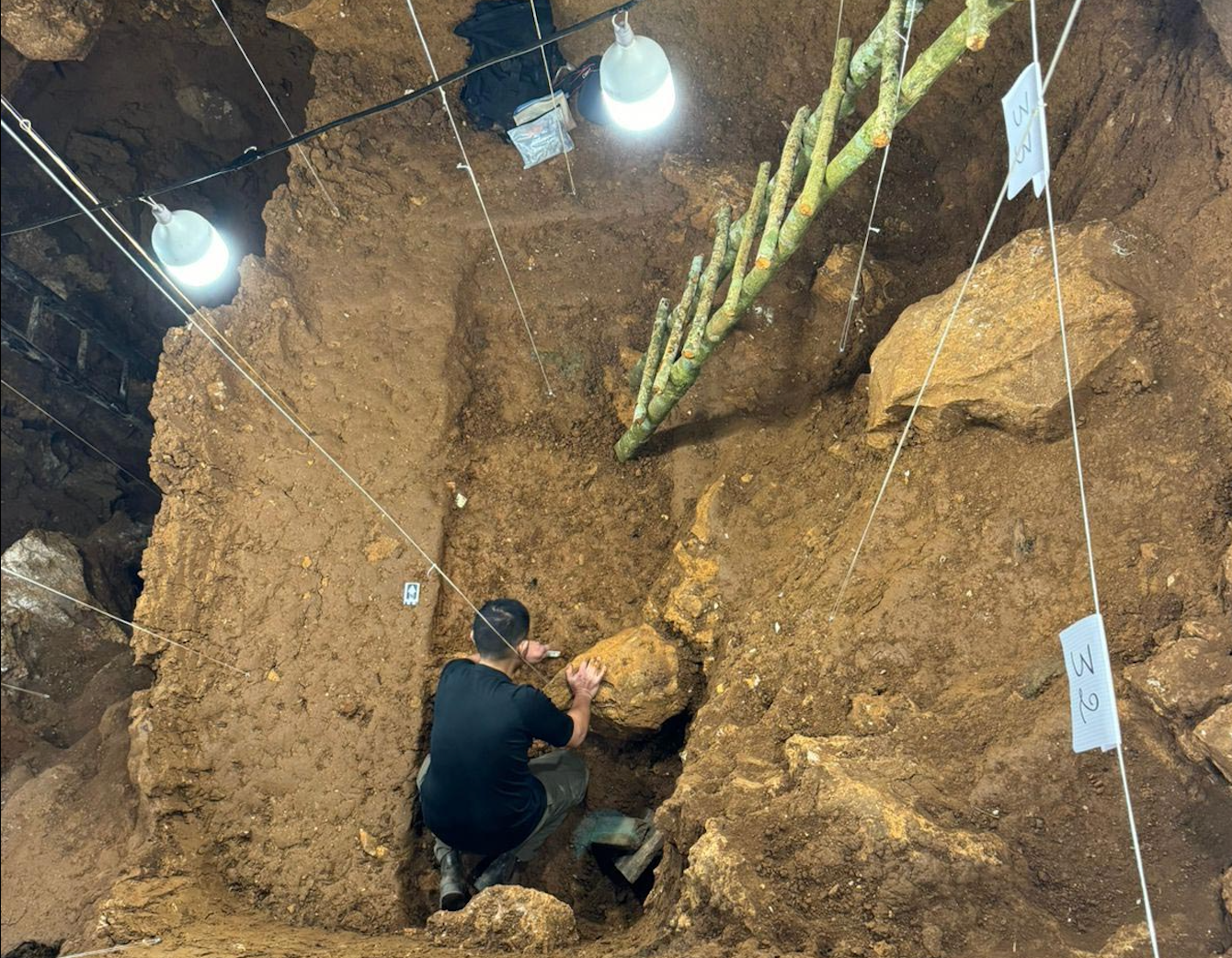Cave fossils reveal how early humans colonised Southeast Asia
Analysis of fossils from Laos cave suggests Homo sapiens dispersed in region earlier than previously thought
Your support helps us to tell the story
This election is still a dead heat, according to most polls. In a fight with such wafer-thin margins, we need reporters on the ground talking to the people Trump and Harris are courting. Your support allows us to keep sending journalists to the story.
The Independent is trusted by 27 million Americans from across the entire political spectrum every month. Unlike many other quality news outlets, we choose not to lock you out of our reporting and analysis with paywalls. But quality journalism must still be paid for.
Help us keep bring these critical stories to light. Your support makes all the difference.
A cave site unearthed in Laos has provided evidence of one of the earliest human occupations of Southeast Asia, shedding more light on how our species colonised the region during a period of ancient climate change.
The study, detailed in the journal Quaternary Science Reviews, reconstructed ground conditions at the Tam Pà Ling cave in Laos between 52,000 and 10,000 years ago.
Previous excavations had found human fossils deposited in the cave dating between 86,000 and 30,000 years ago, suggesting an earlier dispersal of Homo sapiens into Southeast Asia than previously thought.
A detailed analysis of the sediments surrounding them had not been done before, however.
Researchers from Flinders University in Australia conducted a microscopic analysis of dirt from the cave to understand changes across past environments.

The findings helped determine “the precise circumstances by which some of the earliest modern human fossils found in Southeast Asia were deposited deep inside” in the cave.
The analysis revealed traces of human and animal activity overlooked during previous excavations, offering more insights in their adaptation to environmental changes in tropical conditions.
The cave was wet “but not inundated” for long periods from 50,000 to 30,000 years ago, shifting from being temperate to humid, the study found.
Researchers found that the human fossils could have been washed deeper into the cave as loose sediments accumulated over time.
The fossils were likely carried by water from surrounding hillsides during periods of heavy rainfall.
There were also signs of the cave experiencing a period of dryness around 24,000 years ago with a return to wet and temperate conditions soon after.
The analysis suggested that conditions in the cave fluctuated drastically from a temperate climate with frequent wet ground to conditions becoming seasonally dry, the study noted.

The region likely also experienced forest fires during the drier periods. Alternatively, researchers said, humans visiting the cave could have used fire inside or near the entrance.
“Preserved combustion byproducts identified in the sediments suggest two possible scenarios, one where small forest fires may have occurred during periods of regional aridity and/or another where humans visited the cave,” researchers wrote in the study.
The forest fires though were likely small and limited to open patches in the forest canopy.
“This research has allowed our team to develop unprecedented insights into the dynamics of our ancestors as they dispersed through the ever-changing forest covers of Southeast Asia, and during periods of variable regional climate instability,” Fabrice Demeter, one of the study’s authors, said.
Subscribe to Independent Premium to bookmark this article
Want to bookmark your favourite articles and stories to read or reference later? Start your Independent Premium subscription today.

Join our commenting forum
Join thought-provoking conversations, follow other Independent readers and see their replies
Comments